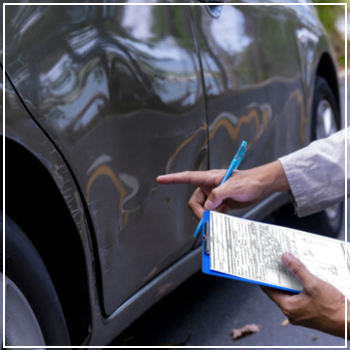 It's easy to overlook a small scratch on your car, especially if it doesn't seem to affect the overall performance. However, what might appear as just a minor blemish can actually be the beginning of something more serious. Left untreated, scratches can lead to rust and reduce the resale value of your vehicle. That’s why it’s always best to address them early before they become a bigger problem.
It's easy to overlook a small scratch on your car, especially if it doesn't seem to affect the overall performance. However, what might appear as just a minor blemish can actually be the beginning of something more serious. Left untreated, scratches can lead to rust and reduce the resale value of your vehicle. That’s why it’s always best to address them early before they become a bigger problem.
What to Do in the Short Term
When a car gets scratched, the damage often goes through the clear coat and into the paint, and in some cases, even to the metal beneath. The deeper the scratch, the greater the risk of rust forming. At this point, you might be tempted to use touch-up paint as a quick fix—but it’s not always the best solution.
Here are some reasons why touch-up paint may not be the best option:
- Matching the exact color of your car can be difficult, especially if the paint has faded over time.
- If you don’t properly clean and prep the area before applying the paint, the result may look uneven or flake off quickly.
- Using a brush to apply the paint manually can make the repair more visible, especially if the existing paint is different in texture or sheen.
- If the scratch is deep enough, rust may have already started underneath. Covering it with new paint won’t stop the corrosion from spreading.
Even simple tasks like washing your car can worsen a scratch if it cuts below the clear coat. That’s why it’s important to handle these issues carefully and consider professional help when needed.
How to Repair Car Scratches
The right repair method depends on how deep the scratch is:
- Superficial Scratches: These only affect the top layer and don’t penetrate the clear coat. A good polish or wax can usually remove these without needing a full repaint.
- Basecoat Scratches: These go through the clear coat and into the colored basecoat. To fix them, the area needs to be sanded, primed, and then repainted with a matching color before a new clear coat is applied.
- Deep Scratches: If the scratch reaches the primer or metal, it requires more extensive work. This includes filling the area, applying basecoat and clear coat, and then buffing the surface to match the rest of the car.
Insurance Considerations for Car Scratches
Understanding how the scratch happened can determine which part of your insurance policy applies:
- Comprehensive Coverage: This covers damage caused by vandalism, falling objects, or weather-related incidents. For example, if a shopping cart hit your car or hail caused dents, this coverage could help.
- Collision Coverage: This applies if the scratch was caused by an accident, such as another vehicle hitting yours or a tree branch damaging the body. It also covers incidents like side swipes or door dings.
If you're unsure about the cause, an insurance adjuster can assess the damage and help determine the next steps. It’s always a good idea to document the scratch with photos and report it promptly to your insurer.
If your car has been recently scratched, bring it to DaSilva’s Auto Body. We specialize in removing rust, repairing scratches, painting and waxing the affected area, and handling communication with your insurance company if you plan to file a claim. Our team is here to ensure your car looks as good as new. Contact us today at our Naugatuck location to learn more about our services and schedule a consultation.
Sinopec Pva 088-03,Sundy Pva 088-03,Polyvinyl Alcohol 088-03,Changchun Pva Bp-03
Saint Petrochemicals Limited , https://www.saintpec.com